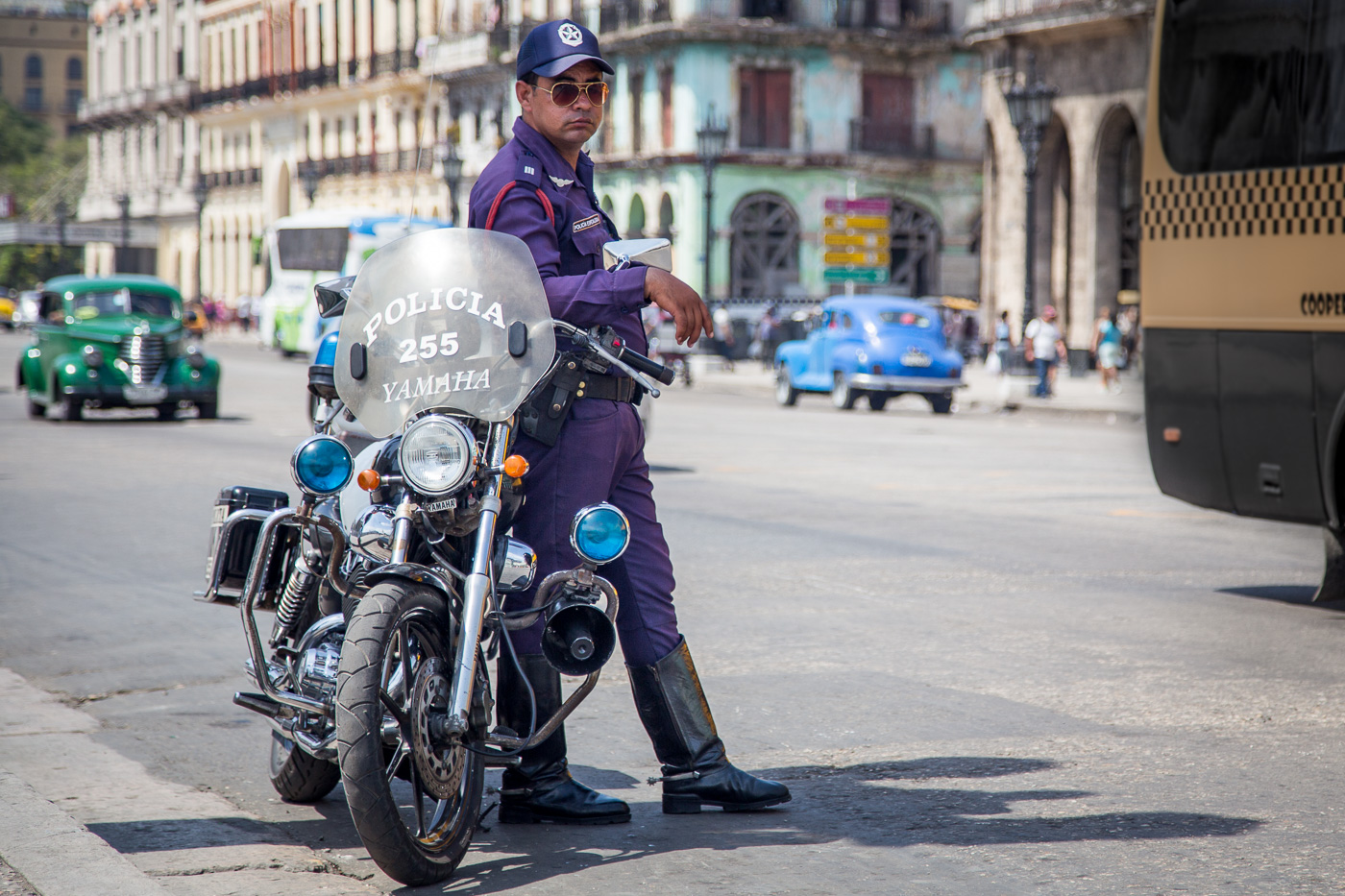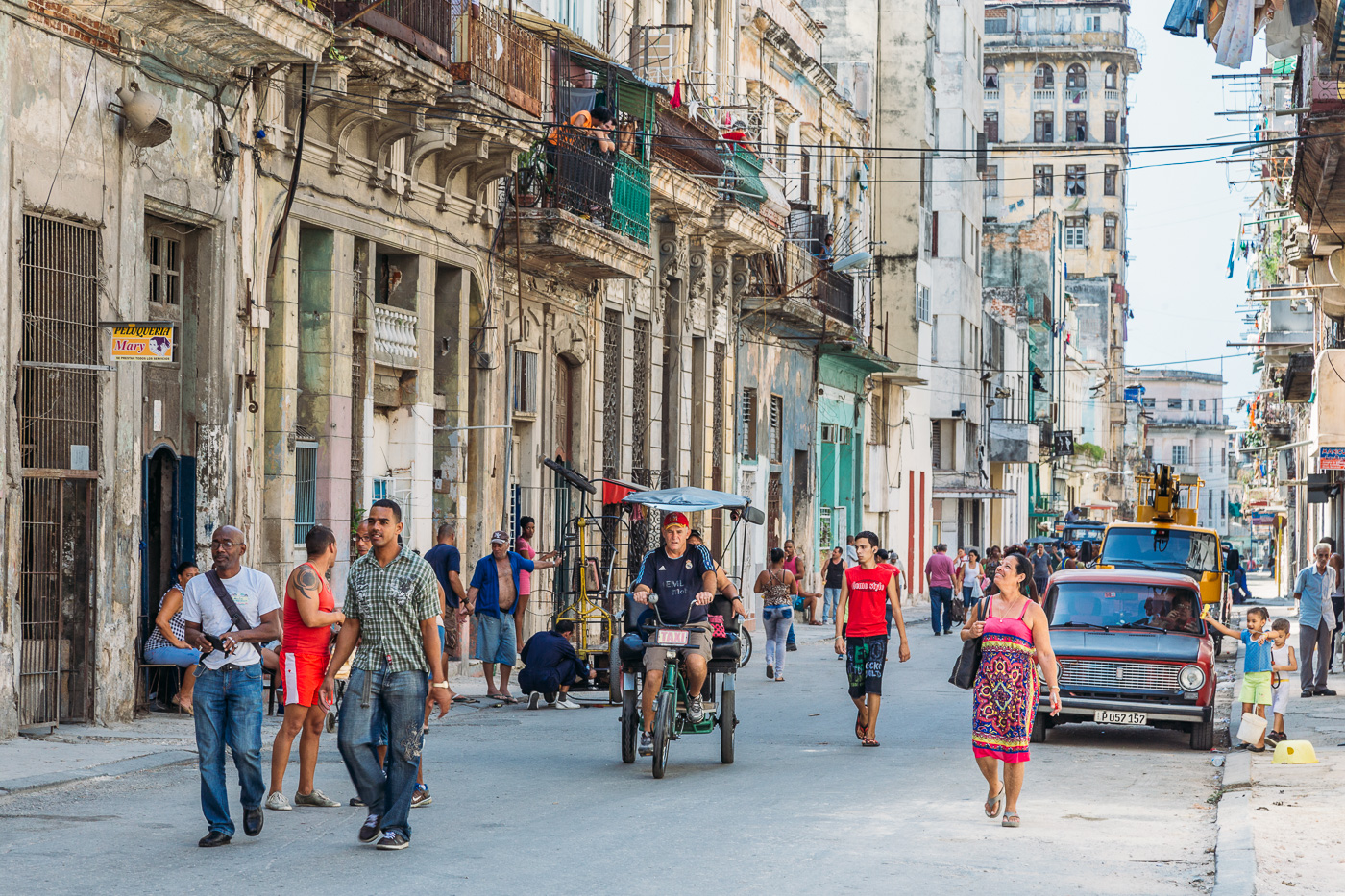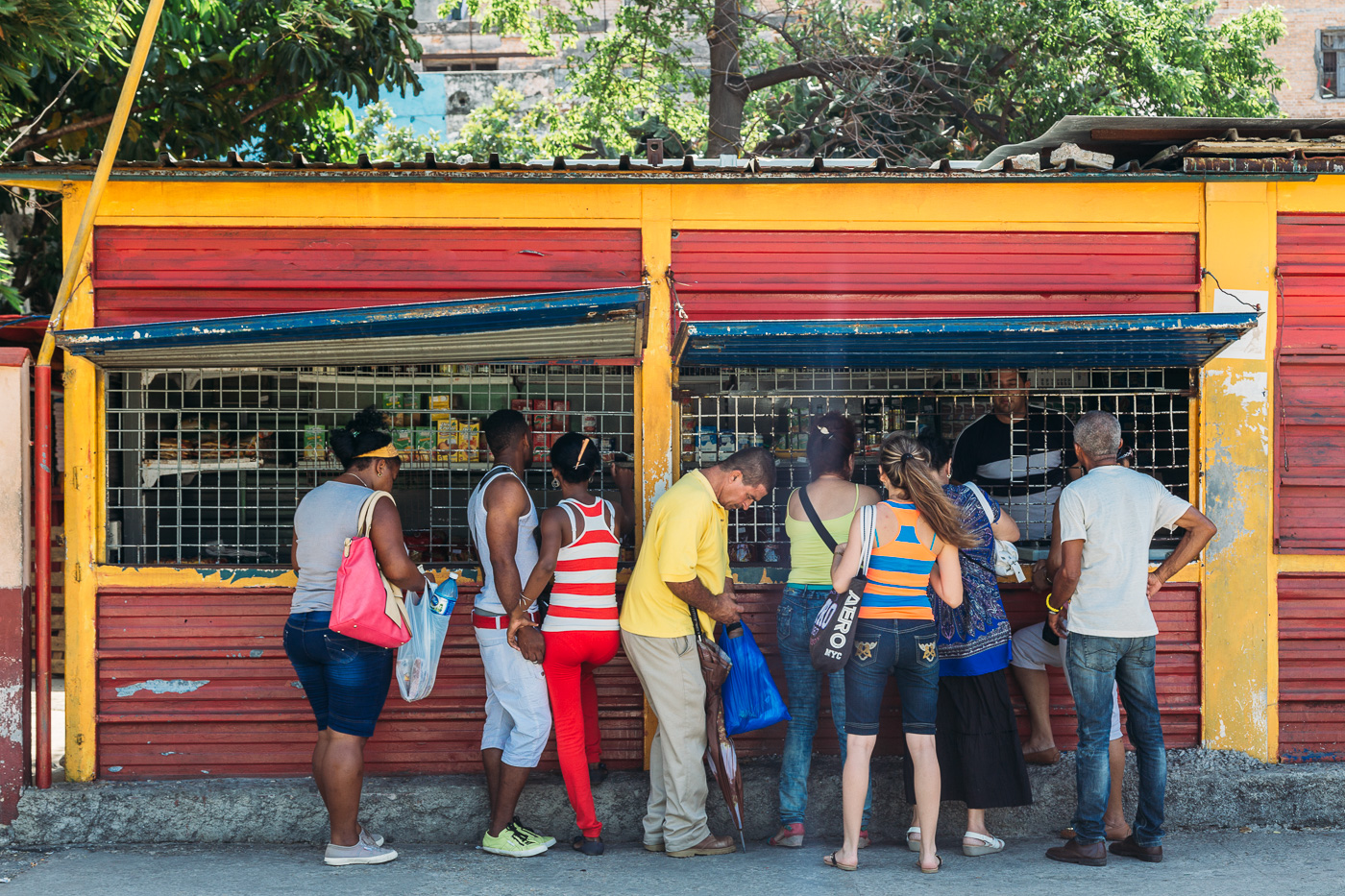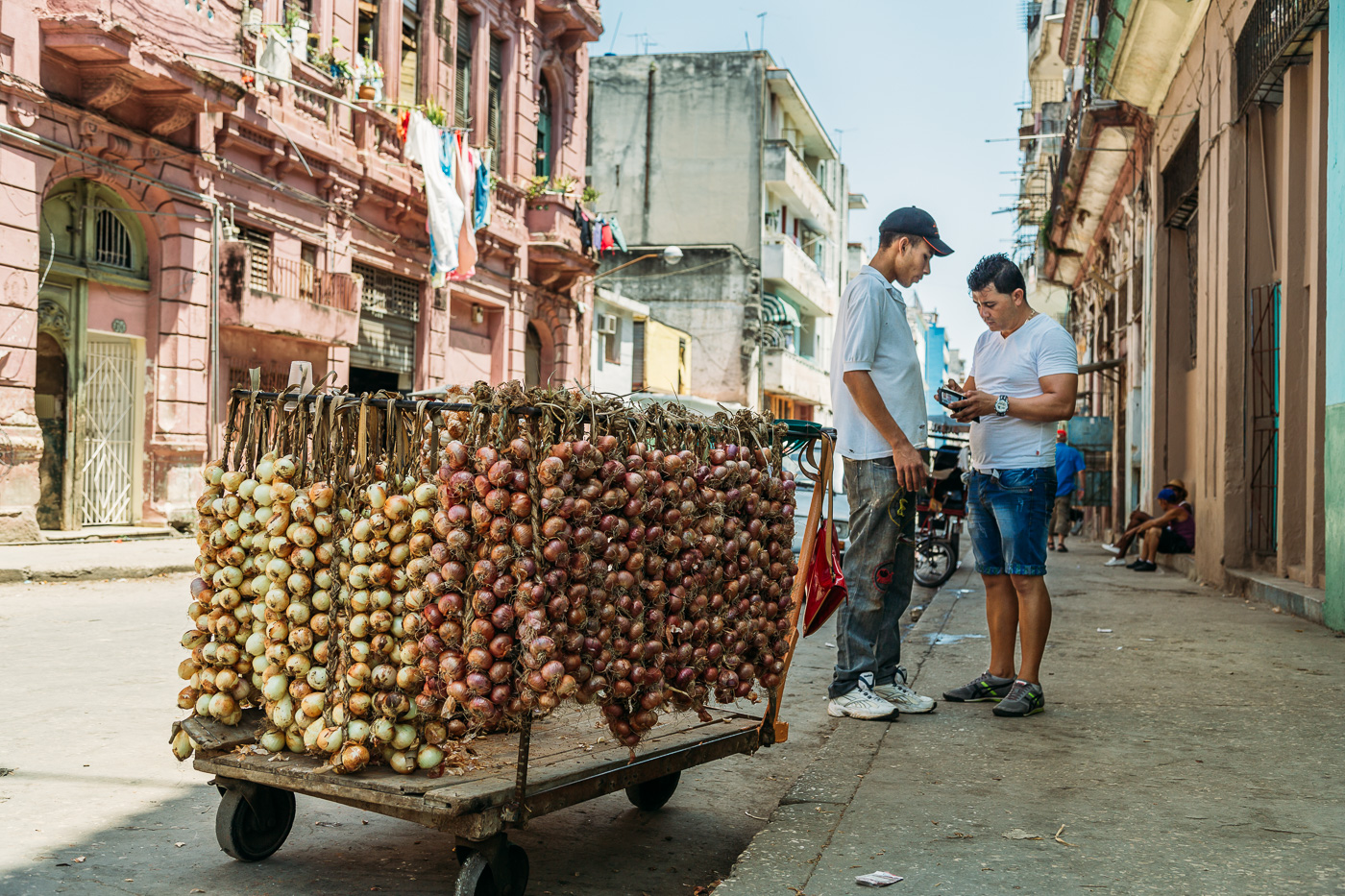We arrived in Cuba with few expectations.
We were intrigued to visit before the borders fully opened up to United States tourists and “things started to change.” (Though depending on who you ask it is debatable the extent to which they really will.) We were equally as excited about the gorgeous Spanish colonial architecture, riding in restored 1950’s American cars, the making of cohibas, sipping cool pina colatas and soaking in the sun during some quality beach time.
After spending a short 9 days here, Cuba may be the most fascinating place Adam and I have ever visited and for reasons we didn’t expect.
Taking A Step Back In Time
It very much feels as though time and progress stopped in Cuba in 1959. Old restored American automobiles still dominate the roads (accounting for 1/6 of all motorized vehicles nationwide) and serve as the major form of taxi transportation in the country. Decrepet, abandoned resorts, that saw their hayday of tourists during the 1950s, lie vacant. Very few of the Spanish colonial mansions lining Havana’s streets have been restored and time has taken its toll. Restaurants and amenities catering to tourists seem to reflect what Cubans have seen from re-runs of 1990’s American television shows – supersized hambergers (hamberguesas) and fries with fine dining china sets.
Oh and did we mention that internet is almost nonexistent? While the government reports that 25% of the Cuban population has access to internet, in our estimation it is much much lower. Like maybe 10%, maybe. Internet speeds are incredibly slow and most access is only available at high end resorts or government surveilled sites. Staying at casa particulares, we didn’t have access at all while we were in Cuba which drove Adam crazy to be so disconnected. Without google, yelp and trip advisor at our fingertips we were at the mercy of our guidebook to know what to do, where to eat and how to get there.
Cuba’s Communism
It’s hard to know what to make of Cuba’s communism – or path to communism rather. According to one of our homestay hosts, while it has been 56 years since Fidel Castro’s revolution and initiatition of socialist reforms, Cuba is still on its path to true communism. They have recently emerged from a 20+ year long Special Period in Time of Peace dealing with an extended economic depression.
This might explain why even to the naked eye one can see that income inequality exists between those who are either affiliated with Raul Castro’s regime or receive remittances from Cuban-American relatives in the United States and everyone else. In a country built on the principles that there are no social classes and all means of production should be divided amongst people equally, there are most definitely haves and have nots in Cuba today.
Grocery stores were perhaps the most obvious sign that present times were difficult for the everyday Cuban. No matter which government-run market we went into, the shelves were perpetually bare, half filled with Havana Club rum and cheap high calorie Cuban made versions of cookies, chips and sodas. In most grocery stores, fresh fruits and vegetables were not even available. And while Cubans do shop at commissaries for staple goods, foods are rationed across the population so even if you had the money to pay for something, you might have to go months without goods such as butter or milk, as one of our host families had.
During our Amazon tour, we had a healthy debate with new friends from South Africa and London about whether the average Cuban under the Castros’ communist rule was better or worse off than someone in a lesser developed country like in West Africa. Certainly health care and education, two of Fidel’s points of pride, are far better in Cuba than in many countries around the world and are made universally available. However, while people aren’t necessarily starving, poverty is palpable. Coming from a country where entrepreneurship is taught and encouraged, it’s depressing to see so little opportunity for people to improve their circumstances (as a result of government control) if they wanted to.
The Lucrative Industry of Tourism
The hierarchy of professional jobs in Cuba is also upsidedown compared to the United States and other western countries. As one psychologist by day, doorman by night Leonard told us, your economic opportunities are greatest if you are a waiter or work in the tourism industry where you have the possibility of getting tips from foreigners. For him, on the other hand, being a doctor (a highly educated, high paying profession by Western standards) pays a mere 250 CUC ($250US) per month. While this allows him to get by he isn’t thriving.
It was bizzare to imagine future generations of a country aspiring to become wait staff at restaurants because it is in these positions that they have the greatest opportunity to make money.

Safety in Cuba
Coming from Colombia where we were literally chased by a homeless man pretending he had a weapon and were on high alert about an increasingly common airborne drug, burundanga, that when inhaled would render you powerless to your assailant, we were a still a bit jumpy about our personal safety when arriving in Havana.
So it was a surprise to learn that the government punishes Cubans severely for harming, let alone robbing, a tourist. (Our best guess as to why the penalty is so severe is that tourism is one of the largest industries in Cuba and with all tourist agencies and hotel chains being run by the government they profit heavily.) We were quoted by our homestay families anywhere from 20-100 years in jail, or maybe even worse. This is in comparison to killing a revered cow (only meant for consumption by the government officials) at 10-20 years in jail and lastly killing another Cuban at 7 years in jail.
Naturally after only a few days in Cuba we felt quite safe to roam and take photos as we pleased, even in the dodgier neighborhoods in Havana.
Local Perspectives on Cuban-American Relations
“Were are you from?” was typically the first question we were asked by anyone who approached us. And while in other countries we might have been squeemish to announce United States as our nationality, in Cuba the reaction was typically emphatic excitement.
People seemed eager to learn about the easing of restrictions on tourism and trade and were very tuned into current events on the topic. Those who wanted to speak with us about Cuban-American relations were quick to say the issue between our countries is between our governments and heads of State and not our people and that they welcomed us with open arms. Generally people were happy and hopeful that conversations were progressing between Obama and Castro.
Amazing People
Lastly, though perhaps most importantly, we were blown away by the genuine kindness we received from the Cubans we met. In reflecting on all our travels, Adam and I both agreed we have never met a more friendly collective bunch of people than in Cuba.
In a country where opportunities are limited, I expected people to be frustrated and desiring more from life. Instead overall people seemed more soundly grounded in what is important in life – family, health and happiness. We can only hope that the improved relations with the United States (and subsequent influx of money and corporations) doesn’t change the purity and kindness of the Cuba we know today.






























